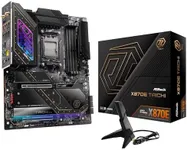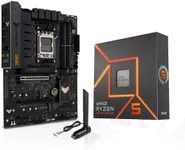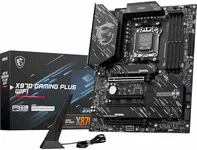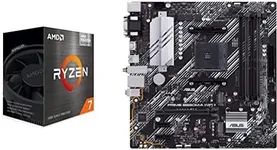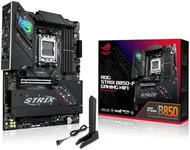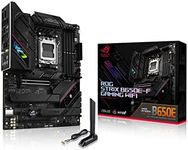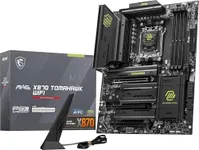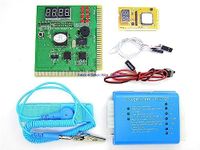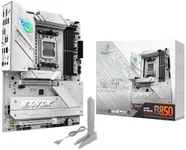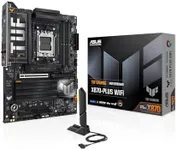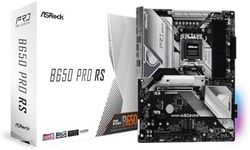Buying Guide for the Best Ryzen Motherboards
Choosing the right Ryzen motherboard is crucial for building a reliable and efficient computer system. The motherboard serves as the backbone of your PC, connecting all the components and ensuring they work together seamlessly. When selecting a motherboard for your Ryzen processor, it's important to consider several key specifications to ensure compatibility, performance, and future-proofing. Understanding these specs will help you make an informed decision that aligns with your needs and preferences.ChipsetThe chipset is a crucial component of the motherboard that determines its capabilities and compatibility with your Ryzen processor. It manages data flow between the processor, memory, and peripherals. Common chipsets for Ryzen processors include A-series, B-series, and X-series. A-series chipsets are entry-level and suitable for basic tasks, B-series chipsets offer a balance of features and performance for mainstream users, and X-series chipsets are high-end, providing advanced features and better overclocking support. Choose a chipset based on your performance needs and whether you plan to overclock your CPU.
Socket TypeThe socket type is the physical interface between the motherboard and the processor. For Ryzen processors, the AM4 socket is the most common. Ensuring that your motherboard has the correct socket type for your Ryzen CPU is essential for compatibility. While most Ryzen processors use the AM4 socket, always double-check the specifications of both the motherboard and the CPU to avoid any mismatches.
Form FactorThe form factor of a motherboard determines its size and shape, which affects the type of case it can fit into and the number of components it can support. Common form factors include ATX, Micro-ATX, and Mini-ITX. ATX motherboards are the largest and offer the most expansion slots and features, making them ideal for high-performance builds. Micro-ATX boards are smaller but still provide a good balance of features and expandability. Mini-ITX boards are the smallest and are suitable for compact builds with limited expansion options. Choose a form factor based on your case size and the number of components you plan to install.
RAM CompatibilityRAM compatibility refers to the type and amount of memory that the motherboard can support. Ryzen motherboards typically support DDR4 RAM, but it's important to check the maximum supported speed and capacity. Higher RAM speeds can improve performance, especially in tasks like gaming and content creation. Additionally, consider the number of RAM slots available on the motherboard. More slots allow for greater memory expansion in the future. Choose a motherboard that supports the amount and speed of RAM you need for your specific use case.
Expansion Slots and PortsExpansion slots and ports determine the connectivity and expandability of your motherboard. Key slots include PCIe slots for graphics cards and other expansion cards, as well as M.2 slots for high-speed storage. Additionally, consider the number and type of USB ports, audio jacks, and other connectivity options. If you plan to use multiple GPUs, ensure the motherboard supports SLI or CrossFire configurations. Choose a motherboard with the right combination of slots and ports to accommodate your current and future needs.
BIOS/UEFI FeaturesThe BIOS/UEFI is the firmware interface that allows you to configure hardware settings and manage system performance. Modern motherboards come with UEFI, which offers a more user-friendly interface and additional features compared to traditional BIOS. Look for motherboards with a well-designed UEFI that includes features like easy overclocking, fan control, and hardware monitoring. These features can help you optimize your system's performance and stability. Choose a motherboard with a UEFI that meets your needs and comfort level with system tuning.
VRM QualityThe Voltage Regulator Module (VRM) is responsible for delivering stable power to the CPU. High-quality VRMs are essential for maintaining system stability, especially when overclocking. A motherboard with a robust VRM design will have better heat dissipation and power delivery, which can enhance performance and longevity. If you plan to overclock your Ryzen processor, look for a motherboard with a strong VRM setup. For general use, a standard VRM design should suffice, but it's still worth considering for overall system reliability.

